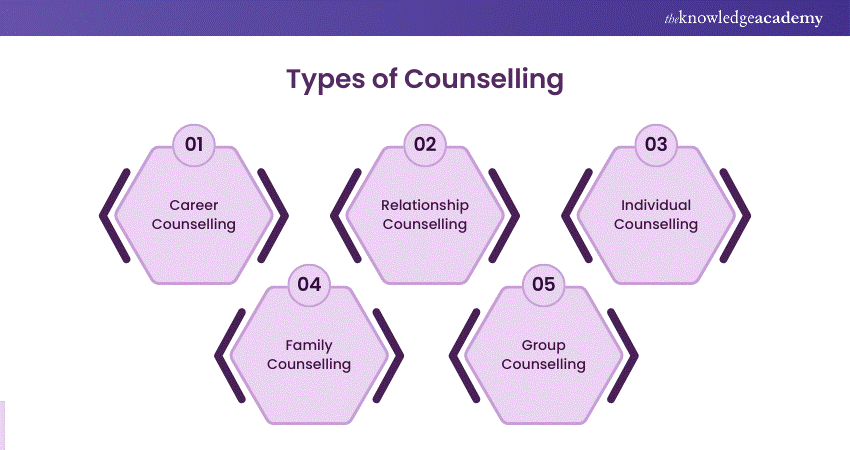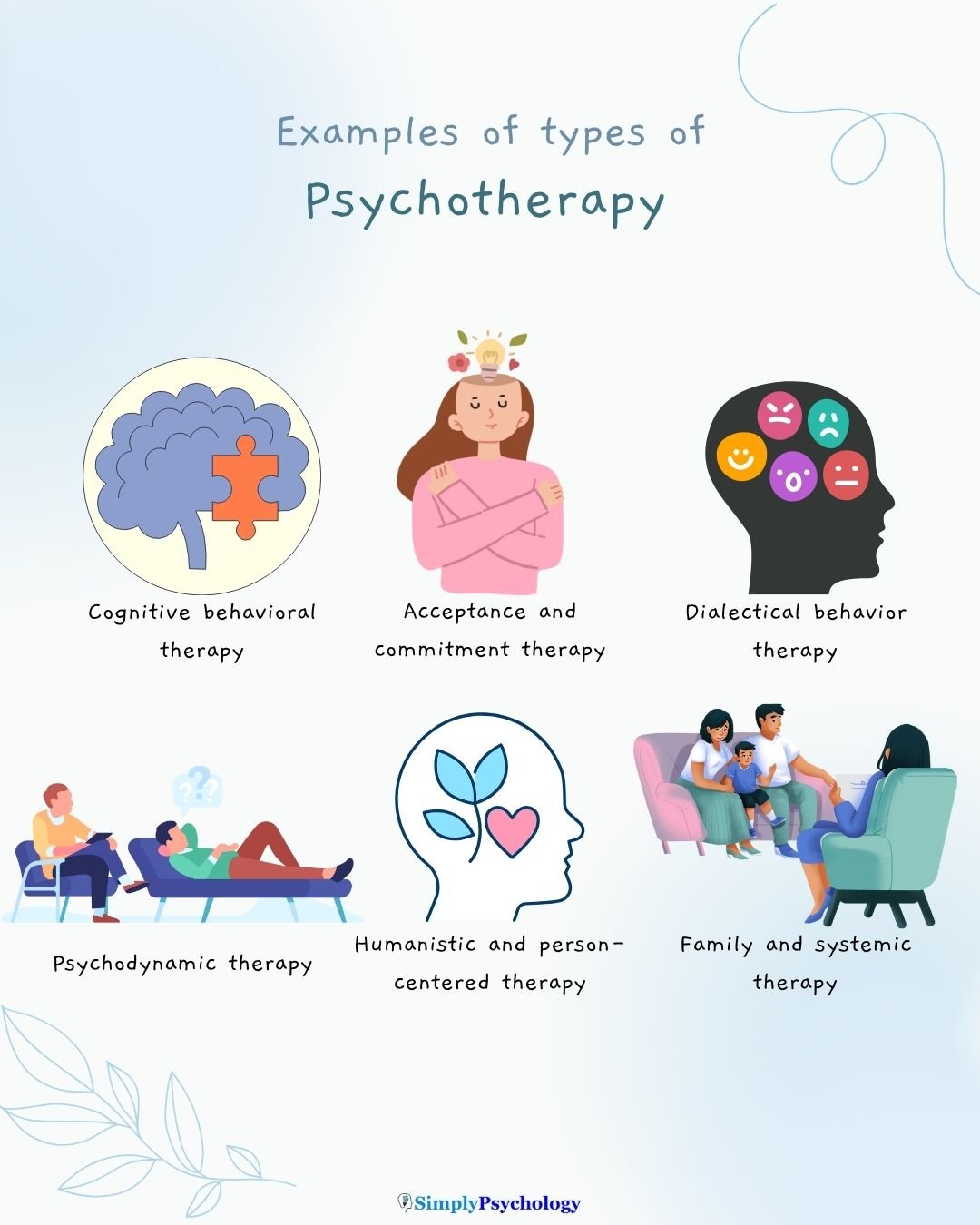A Comprehensive Guide to the Various Kinds Of Therapy and Their Impact
Counseling encompasses a selection of healing techniques, each created to meet one-of-a-kind mental health needs. From the organized techniques of Cognitive-Behavioral Treatment to the empathetic nature of Person-Centered Treatment, these modalities supply unique paths to personal development. Family therapy and Dialectical Behavior modification supply additional frameworks for healing, while team therapy fosters neighborhood assistance. Understanding these varied approaches can illuminate their profound influence on individual well-being. What continues to be to be explored are the intricacies of each method.

Comprehending Cognitive-Behavioral Therapy (CBT)
Although lots of healing approaches exist, Cognitive-Behavioral Therapy (CBT) stands apart due to its organized, ambitious nature. This type of treatment is based upon the property that thoughts, sensations, and actions are adjoined, and by transforming unfavorable thought patterns, individuals can modify their psychological reactions and actions. CBT uses different methods, such as cognitive restructuring, which assists customers recognize and challenge distorted ideas. Behavioral activation encourages involvement in enjoyable activities to combat clinical depression.
Typically, CBT is a short-term therapy, commonly lasting in between 12 to 20 sessions, making it easily accessible for those looking for quick outcomes. Its effectiveness has actually been well-documented in dealing with stress and anxiety problems, depression, and other psychological health issues. The therapist's duty is to lead clients via exercises and homework jobs, fostering self-awareness and advertising long-term coping methods. This sensible method encourages individuals to take control of their mental wellness, inevitably leading to enhanced life complete satisfaction.
Checking Out Person-Centered Therapy
Person-Centered Treatment, created by Carl Rogers, provides a different strategy to Cognitive-Behavioral Treatment by emphasizing the customer's subjective experience. This healing model prioritizes the person's viewpoint, cultivating a setting of empathy, genuine favorable regard, and authenticity. By permitting clients to explore their sensations and ideas without judgment, therapists promote individual growth and self-discovery.
The core tenet of Person-Centered Treatment is the idea that people have the intrinsic capability for self-healing and personal development. In this setup, the specialist functions as a supportive overview as opposed to a regulation authority, urging clients to take charge of their very own journey. This technique is particularly reliable for those coming to grips with issues such as low self-esteem, stress and anxiety, or clinical depression, as it encourages them to face and comprehend their emotions. Eventually, Person-Centered Therapy grows a solid restorative partnership, fostering trust and openness important for meaningful modification.
The Duty of Family Therapy in Recovery
Family members therapy acts as an important component in the recovery process for people and their relationships. This restorative approach concentrates on enhancing interaction, resolving conflicts, and fostering deeper connections amongst member of the family. By dealing with useless characteristics, family treatment encourages each member to express their thoughts and sensations in a secure environment, promoting understanding and empathy.

The impact of family members therapy expands beyond the sessions, as enhanced relationships can bring about improved psychological well-being for all included. Overall, family members therapy plays an essential role in healing by cultivating unity, durability, and common support among household participants, ultimately leading them toward a much healthier, more satisfying life with each other.
Unloading Dialectical Behavior Modification (DBT)
Structure on the structure of healing methods that improve emotional wellness, Dialectical Behavior modification (DBT) supplies an organized framework for people having problem with intense feelings and behavior challenges. Developed by Marsha Linehan, DBT integrates cognitive-behavioral techniques with mindfulness techniques, intending to aid customers handle overwhelming feelings and improve interpersonal efficiency.
The treatment is especially valuable for those detected with Borderline Individuality Problem however is likewise appropriate to a series of various other mental health issues. virtual therapy. DBT is composed of private therapy sessions and abilities training teams, focusing on four essential ability: mindfulness, distress tolerance, emotion law, and social efficiency
The Advantages of Team Therapy Procedure
While private therapy supplies important insights, group counseling sessions use special benefits that can significantly improve the therapeutic experience. One vital benefit is the sense of community that emerges amongst individuals. Individuals frequently discover comfort in sharing their experiences with others encountering similar difficulties, cultivating a supportive environment that lowers sensations of isolation.
Group sessions urge varied perspectives, allowing individuals to discover from each various other's coping techniques and understandings. This cumulative knowledge can bring about boosted problem-solving capacities and a more comprehensive understanding of individual concerns.
In addition, team therapy often advertises liability, as members inspire each other to pursue their objectives and comply with their commitments. Finally, the cost-effectiveness of team treatment makes it an accessible choice for lots of individuals seeking assistance. Generally, the collaborative nature of team counseling sessions can substantially enhance the therapeutic trip.
Frequently Asked Inquiries
What Qualifications Do Specialists Need to Practice Therapy?
Specialists usually require a pertinent level in psychology or therapy, in addition to monitored medical experience. Additionally, they need to acquire ideal licensure or qualification to exercise legally, guaranteeing adherence to expert requirements and moral guidelines.
How Do I Choose the Right Type of Therapy for Me?
Choosing the best kind of treatment entails reviewing individual needs, exploring various methods, thinking about therapist specialties, and seeking suggestions. Comprehending private goals and preferences can significantly enhance the effectiveness and complete satisfaction of the therapeutic experience.

Are Online Counseling Sessions as Effective as In-Person Ones?
The efficiency of on the internet therapy sessions contrasted to in-person ones commonly depends on private preferences and situations. Research study shows that both techniques can yield positive end results, though some may locate better comfort in face-to-face interactions.
The Length Of Time Does Counseling Typically Last?

What Should I Anticipate During My Very First Counseling Session?
Throughout the very first counseling session, clients can anticipate an intro, conversation of their issues, facility of objectives, and an overview of the therapy process - adhd counselling. This initial conference intends to build connection and guarantee comfort